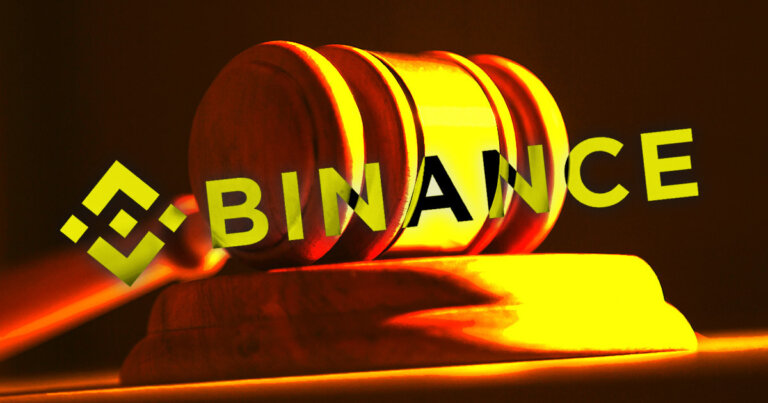 SEC’s sealed motion against Binance could be related to DOJ charges: Former SEC official
SEC’s sealed motion against Binance could be related to DOJ charges: Former SEC official SEC’s sealed motion against Binance could be related to DOJ charges: Former SEC official
The mysterious filing could also be sealed in order to protect witnesses.

Cover art/illustration via CryptoSlate. Image includes combined content which may include AI-generated content.
The U.S. Securities Exchange Commission (SEC) submitted a sealed and potentially high-impact court filing in its case against Binance on Aug. 29.
The filing in question represents the SEC’s sealed motion to leave to file a document under seal. It also includes 36 attachments, including statements from SEC lawyers Jennifer Farer and Matthew Scarlato.
Though the nature of the motion and the documents that the SEC plans to submit are expressly being kept private and are not available to the public, some experts believe the filings are related to pending criminal charges against Binance.
John Reed Stark, who formerly served as the Chief of the SEC’s Office of Internet Enforcement, wrote on X (formerly Twitter):
“In my opinion … the U.S. SEC’s secret and extraordinary court filing, which appears to be highly comprehensive, likely touches upon nonpublic Binance-related money laundering allegations or other potential criminal conduct.”
Specifically, Stark suggested that the SEC plans to file court documents under seal because those filings could interfere with or reveal details about an ongoing prosecution underway at the U.S. Department of Justice (DOJ). Reports as recent as Aug. 7 suggest that the DOJ is considering fraud charges against Binance.
Stark said that any public filing from the SEC could interfere with secret grand jury proceedings, undercover operations, or interactions with witnesses and whistleblowers if any of those activities are currently underway on the part of the DOJ.
Stark also speculated that the SEC might file documents under seal if those filings put a witness or company at risk. However, he noted that this usually results in partial redaction rather than fully sealed documents, making this explanation less likely.
Binance’s actions could point to filing contents
Stark also noted that whether Binance chooses to oppose the sealing motion could point to the nature of the filings. If Binance does not oppose the filing — which Stark says is likely — the documents most likely contain incriminating information that Binance does not want to be revealed. However, if Binance does oppose the filing, the filing likely involves testimony from witnesses that Binance would prefer to identify publicly.
Stark concluded that the SEC’s decision to file extensively sealed documents is rare. He said the SEC did not do so during his 20 years at the agency.

























































